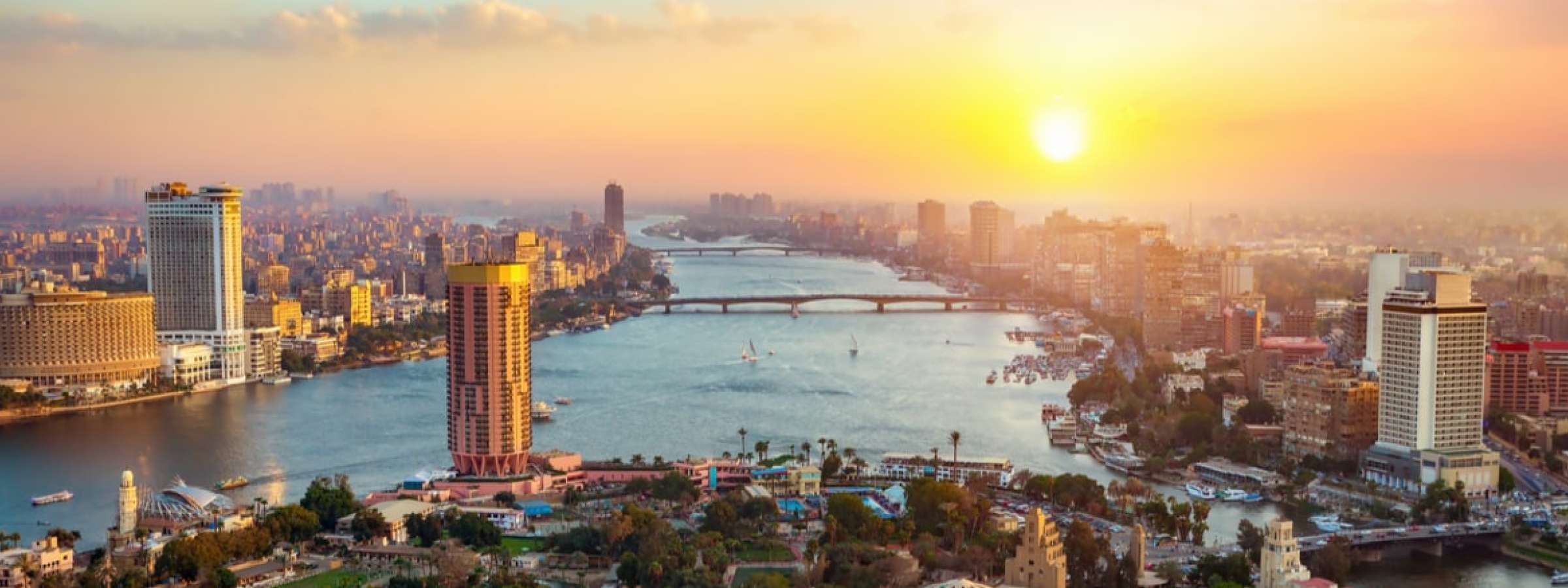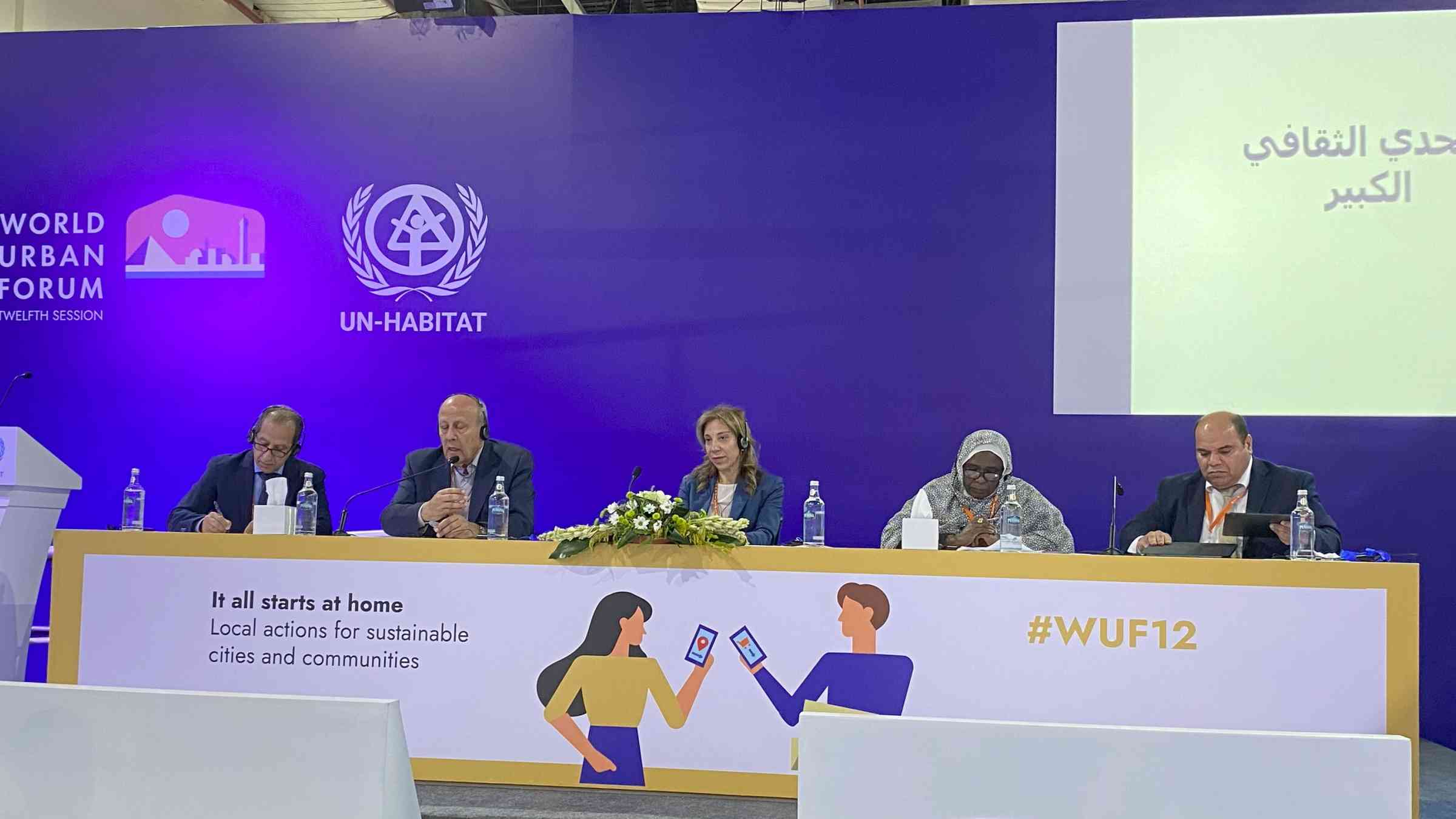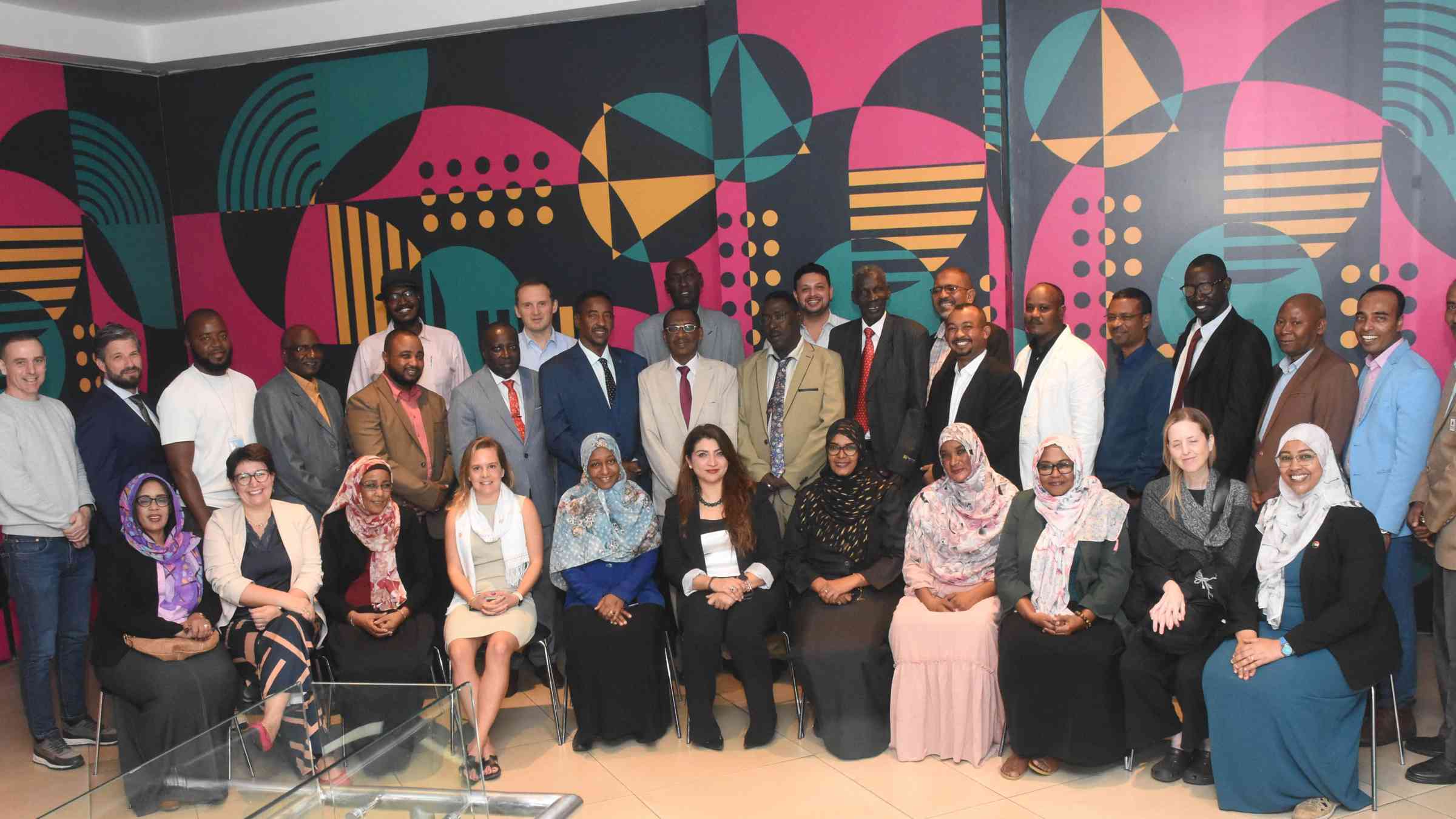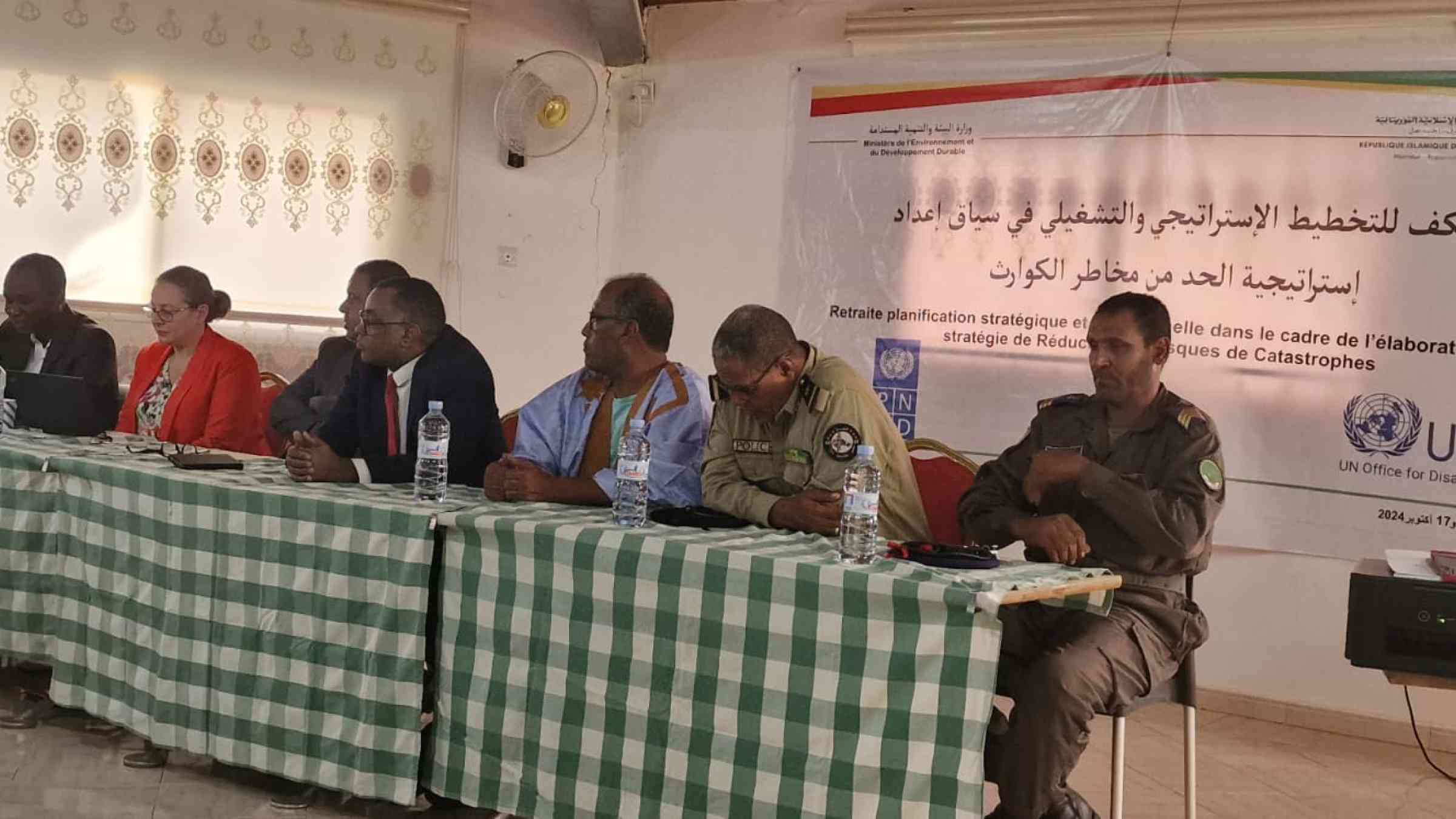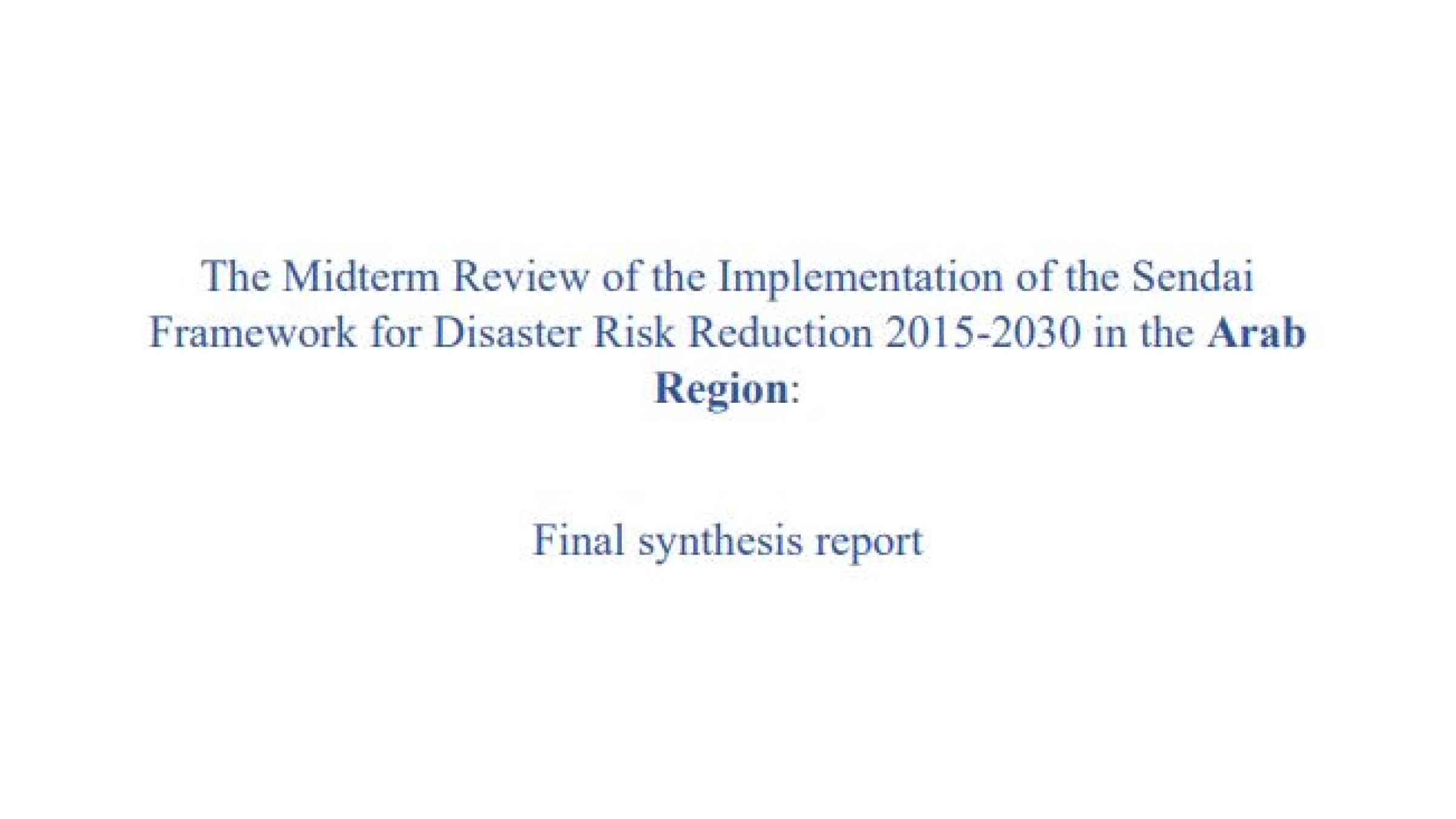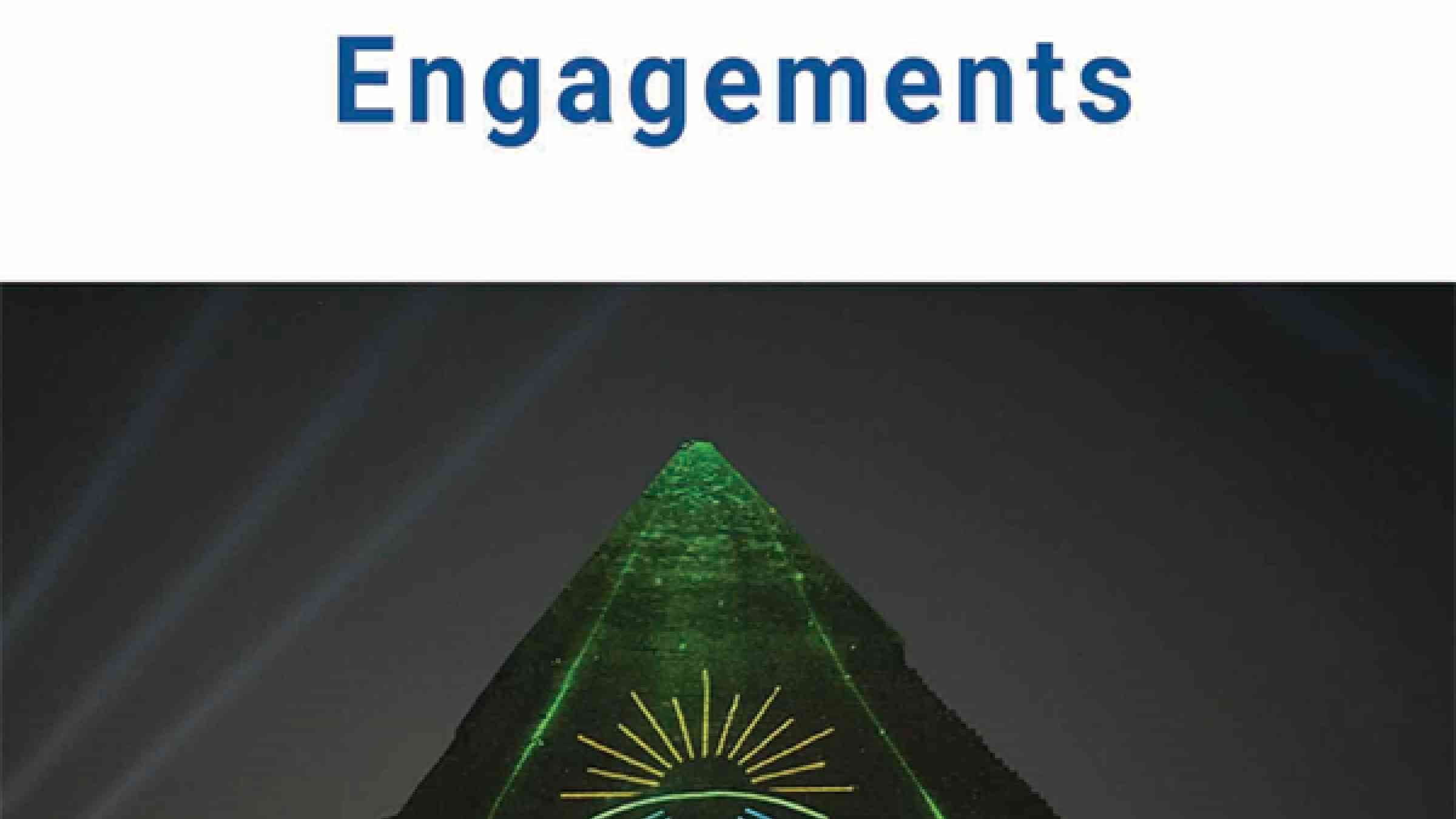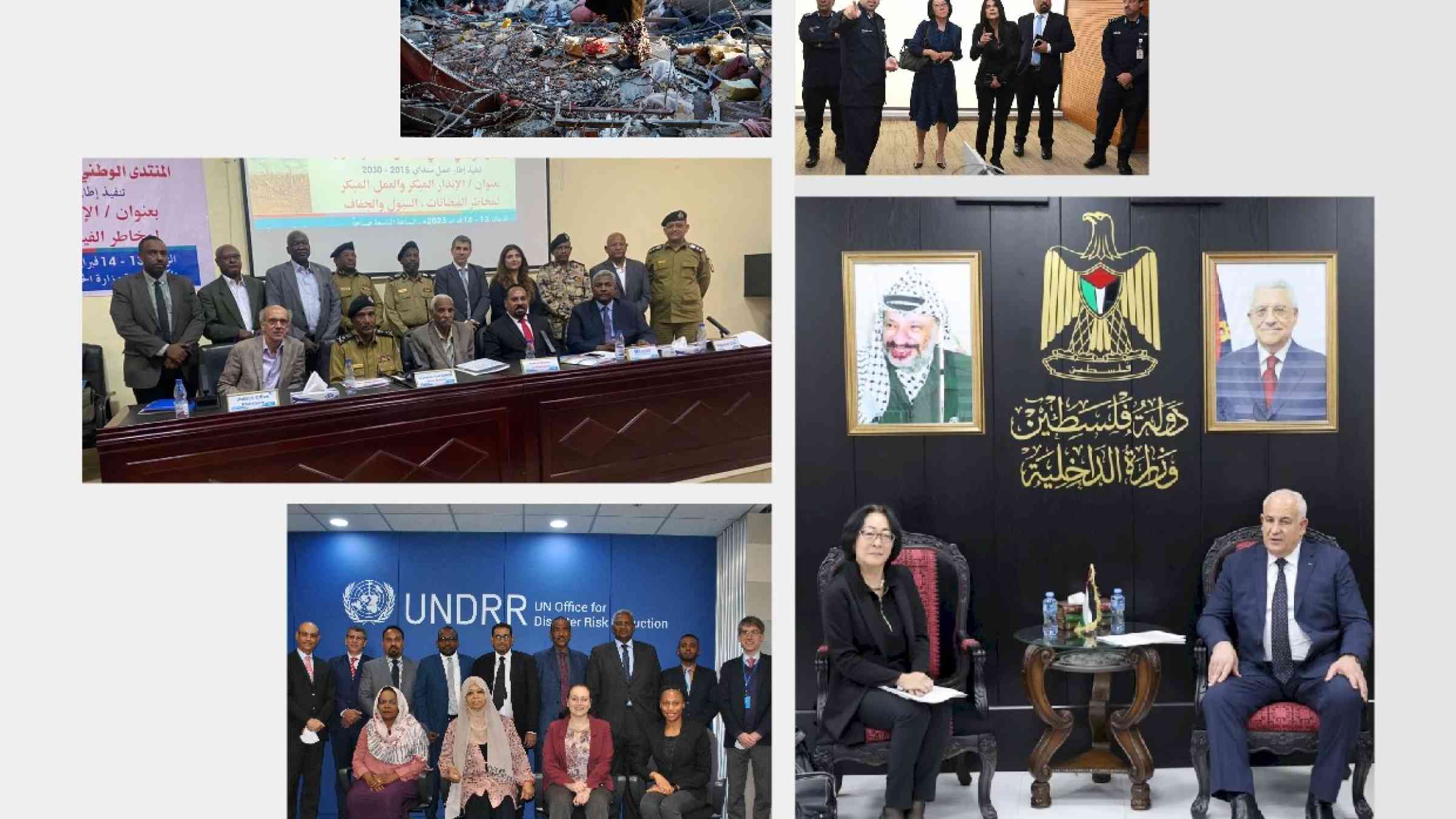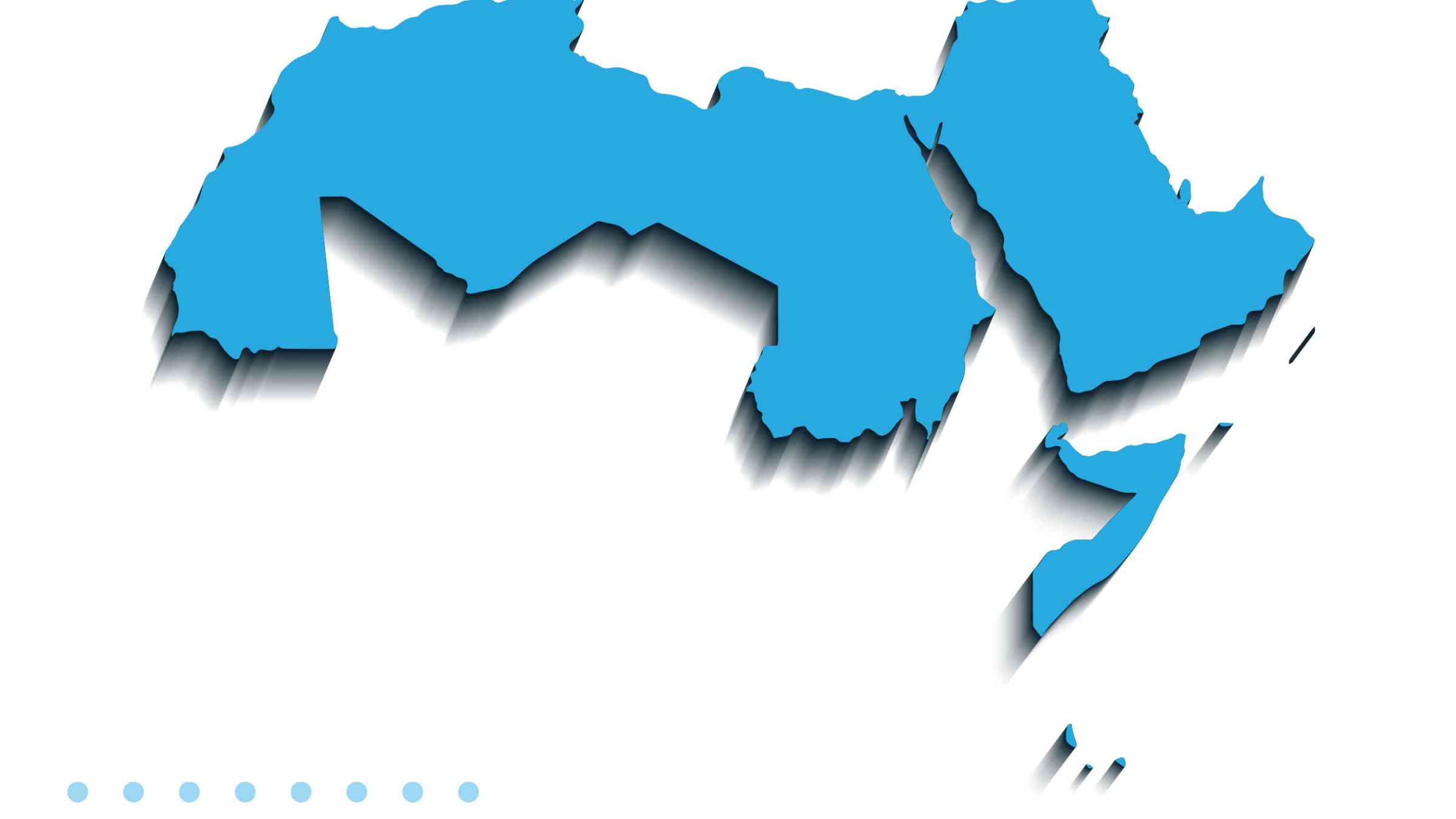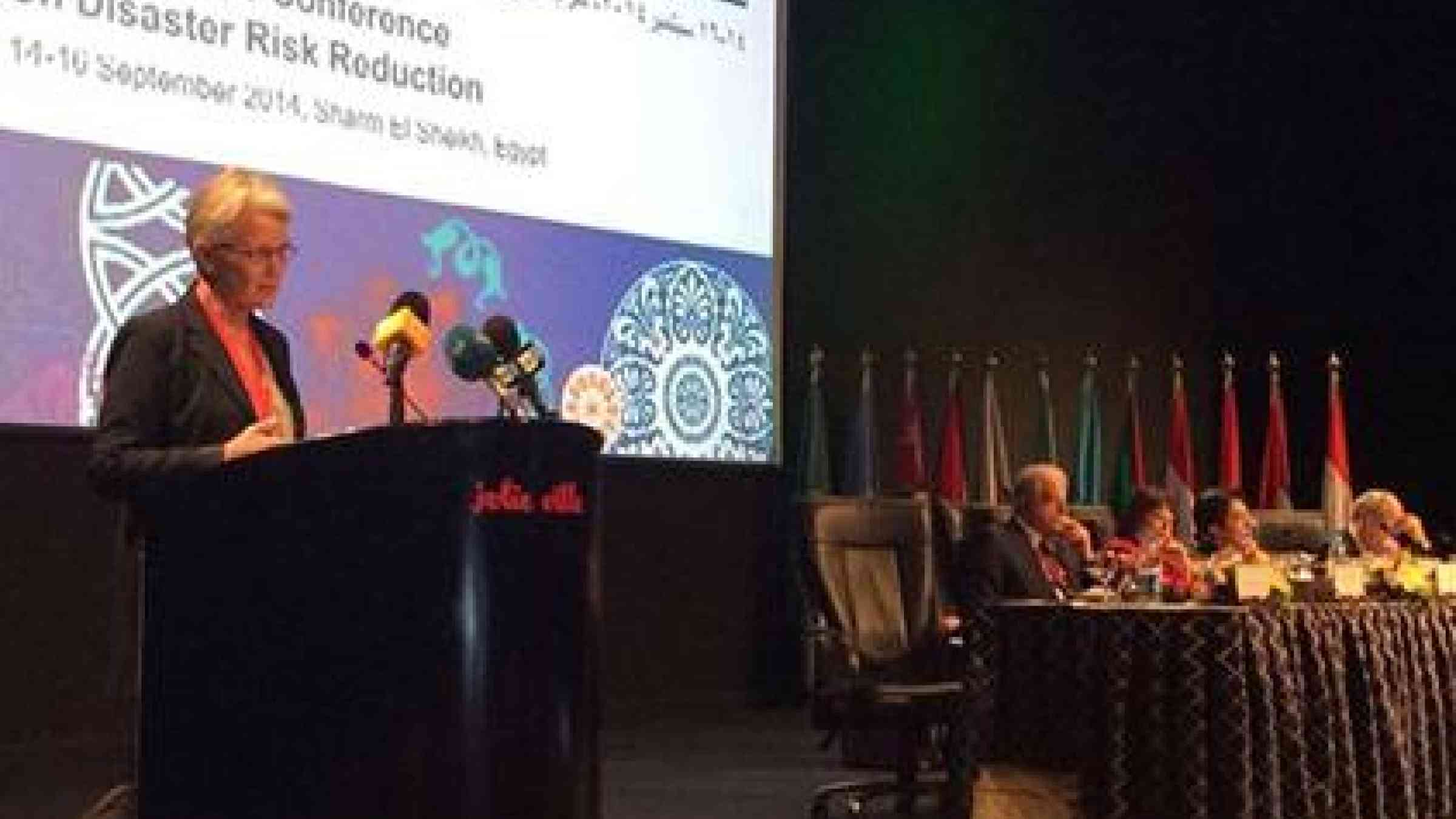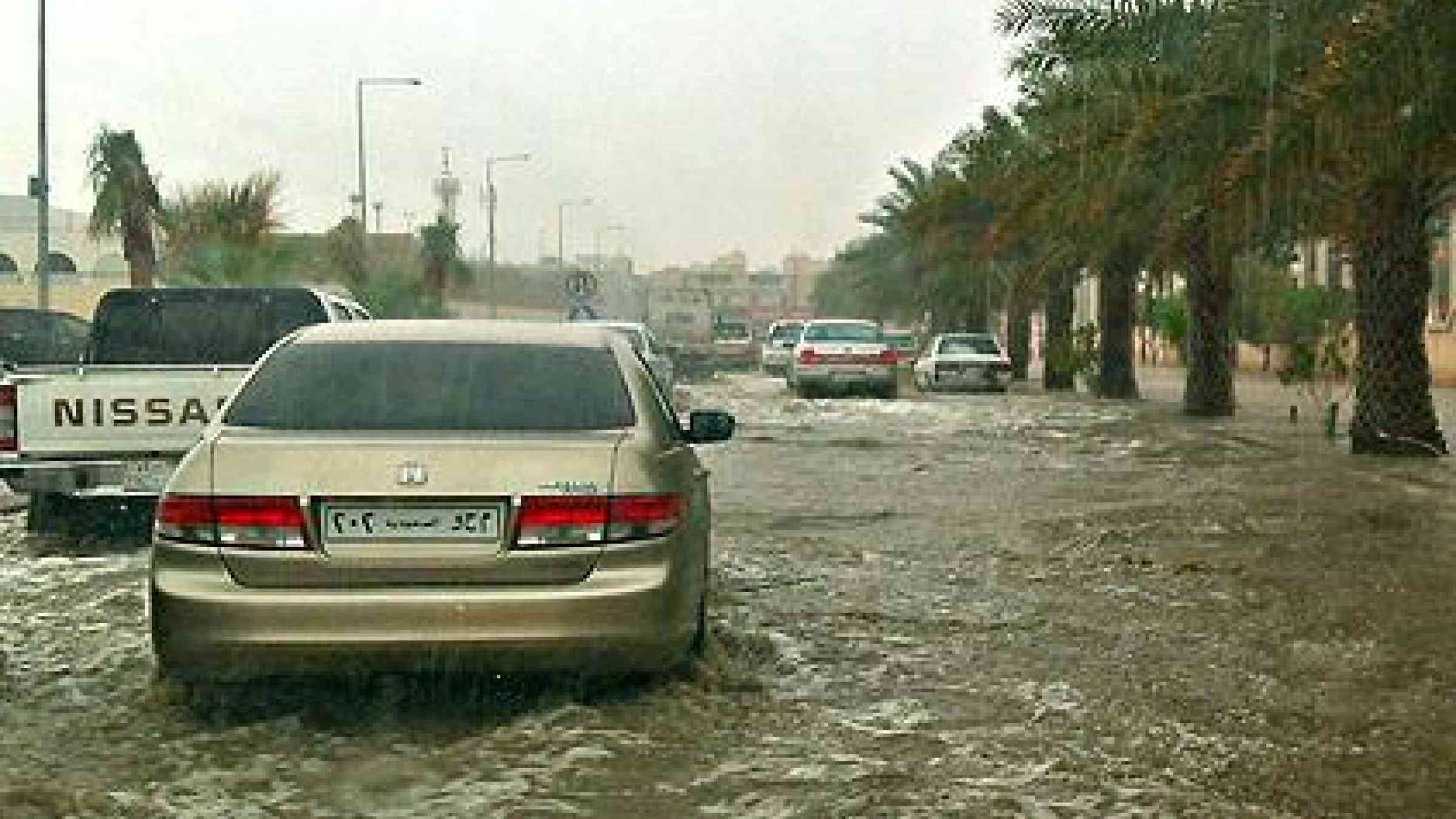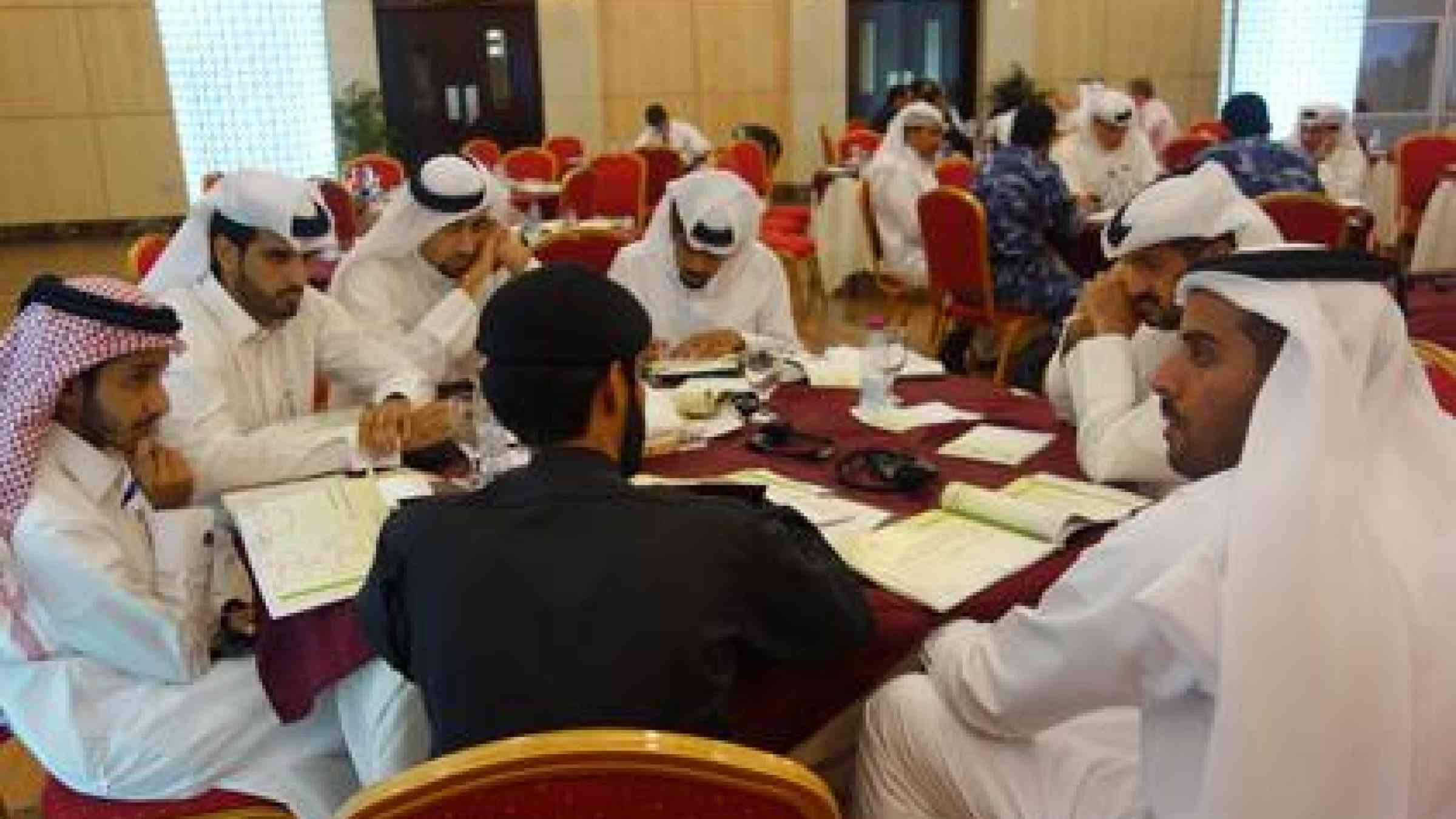Regional Office for Arab States
Covering 22 Arab countries, ROAS aims to support in the development of disaster risk reduction (DRR) policies and actions. The Regional Office provides support and assistance in monitoring and tracking achievements towards the implementation of the Sendai Framework, the Arab Strategy for DRR 2030, and the development of national and local DRR strategies.
ROAS coordinates and builds partnerships for DRR with key regional intergovernmental organizations including the League of Arab States and its technical regional organizations. The office encourages coordination and building innovative partnerships at the regional level with civil society networks, expert technical groups, private sector, media, and UN and international organizations to shape awareness and knowledge of contextual risks and to build risk-informed sustainable development.
UNDRR’s regional efforts help to improve the relevance and understanding of DRR in the region and promote the integration of risk reduction in regional and national policies and plans such as on climate change adaptation, sustainable development, urban development, and city planning.
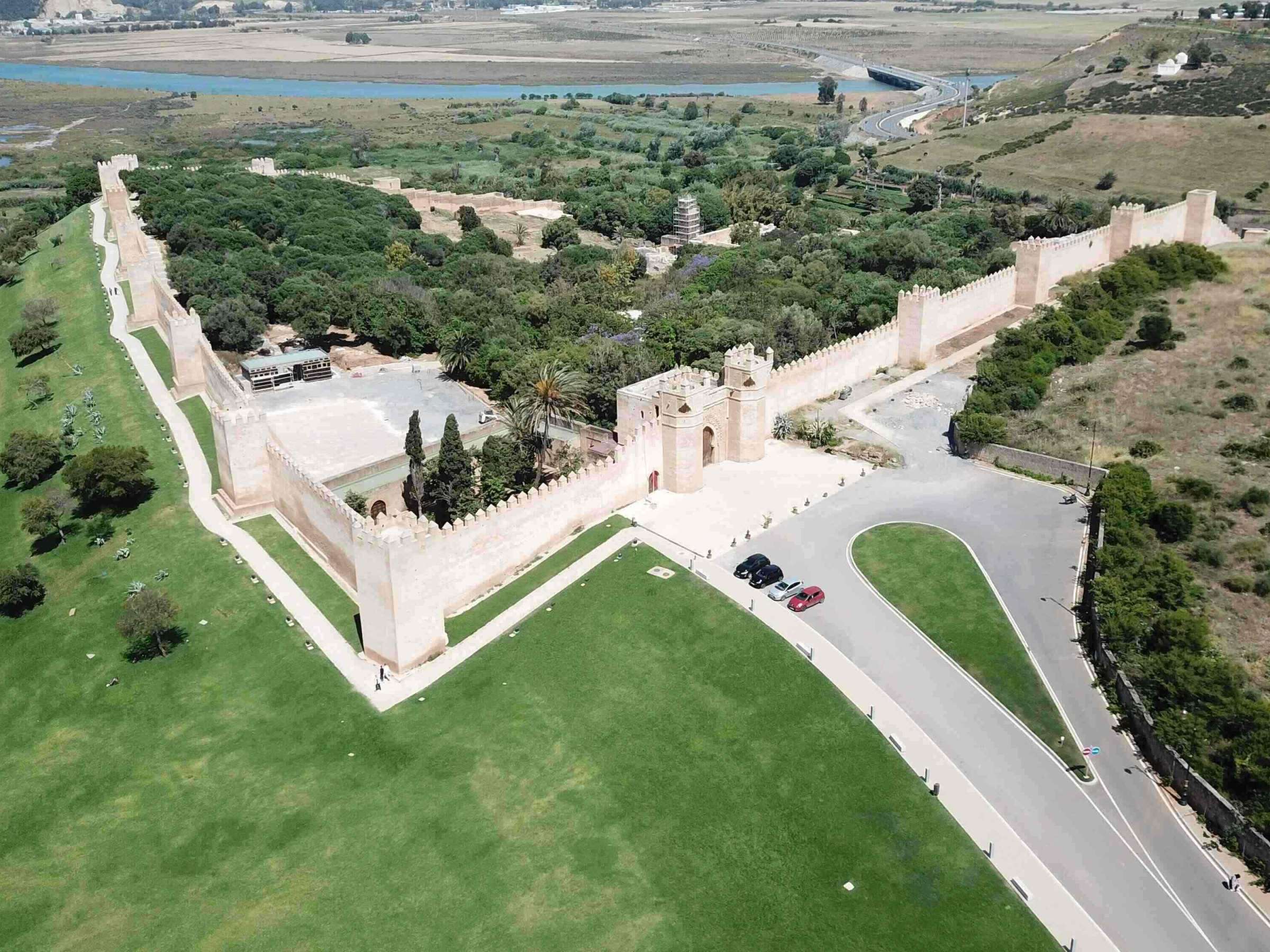
Highlights
Latest publications
Countries
| Country | Sendai Focal Point | National Platform | Country on PreventionWeb |
|---|---|---|---|
 Algeria Algeria |
Delegation Nationale aux Risques Majeurs; Ministère de l'Intérieur et des Collectivités Locales; Ministry of Interior Local Collectivities and land Management | Country resources | |
 Bahrain Bahrain |
General Directorate of Civil Defense, Ministry of Interior | Country resources | |
 Comoros Comoros |
Centre National de Documentation et de Recherche Scientifique, Observatoire Volcanologique du Karthala | Country resources | |
 Djibouti Djibouti |
Ministry of Interior and Decentralization | Country resources | |
 Egypt Egypt |
Cabinet Information and Decision Support Center, Crisis Mangement and DRR Sector | Country resources | |
 Iraq Iraq |
Ministry of Health and Environment | Country resources | |
 Jordan Jordan |
National Center for Security and Crisis Management, General Directorate of Jordan Civil Defense; National Center for Security and Crisis Management, General Directorate of Jordan Civil Defense; General Directorate of Jordan Civil Defence | Country resources | |
 Kuwait Kuwait |
Kuwait Fire Service Directorate | Country resources | |
 Lebanon Lebanon |
Presidency of the Council of Ministers | Country resources | |
 Mauritania Mauritania |
Ministère de L'Environnement et du Développement Durable | National Platform | Country resources |
 Morocco Morocco |
Ministry Delegate to the Head of Government Responsible for General Affairs and Governance; Ministry Delegate to the Head of Government Responsible for General Affairs and Governance; Ministry of Interior; Ministère de l'Intérieur | Country resources | |
 Oman Oman |
Ministry of Environment & Climate Affairs; Ministry of Environment & Climate Affairs | Country resources | |
 Palestine, State of Palestine, State of |
Disaster Risk Management Centre, Prime Minister’s Office | Country resources | |
 Qatar Qatar |
The Permanent Committee of Emergency, Ministry of Interior; The Permanent Committee of Emergency, Ministry of Interior; Ministry of Interior; Ministry of Interior; The Permanent Committee of Emergency, Ministry of Interior | Country resources | |
 Saudi Arabia Saudi Arabia |
Special Civil Defense Emergency Forces | Country resources | |
 Somalia Somalia |
Ministry of Humanitarian Affairs and Disaster Management | Country resources | |
 Sudan Sudan |
National Council of Civil Defense; National Council of Civil Defense | Country resources | |
 Tunisia Tunisia |
Ministère de l'Environnement et du Développement Durable; Ministry of Local Affairs and the Environment | Country resources | |
 United Arab Emirates United Arab Emirates |
National Emergency and Crisis Management Authority | Country resources | |
 Yemen Yemen |
Environment Protection Authority | Country resources |
News and events
United Nations Office for Disaster Risk Reduction - Regional Office for Arab States
Pagination
Events
Previous events
Publications
Pagination
- Page précédente
- Page 1
- Page 2
- Page 3
- Page 4
- Page courante 5
- Page suivante
Activities
Arab Partnership Meeting for Disaster Risk Reduction (DRR)
Following the Sendai Framework guidance, the UNDRR Regional Office for Arab States (ROAS) has been organizing coordination meetings to accelerate the implementation of the Sendai Framework in the region. The most recent declaration, the Rabat Declaration for Disaster Risk Reduction in 2021, which was adopted along with several stakeholder groups’ voluntary action statements during the Arab Regional Platform on Disaster Risk Reduction in 2021, came out as the result of a series of successful coordination meetings ahead of the Regional Platform. Since 2017, the bi-annual Arab Partnership for DRR meetings create a forum for technical and operational deliberation on the progress, challenges, gaps, and solutions in the implementation of the Sendai Framework in the region. These periodic discussions intend to inform the deliberations of the Arab Regional Platform conferences.
The last partnership meeting, held in Bali, Indonesia in May 2022, on the sidelines of the Seventh Session of the Global Platform (GP2022), provided a unique and timely opportunity to showcase the importance of international solidarity and cooperation, address the Midterm Review (MTR) of the Sendai Framework stock take, identify emerging issues, uncover context shifts, and build coherence with other frameworks, to better address the systemic nature of risk. The meeting explored how to strengthen disaster risk governance and how to build stronger systems for managing all types of risks.
Making Cities Resilient Campaign
The "Making Cities Resilient" campaign aims to improve local resilience through advocacy, sharing knowledge and experiences, establishing mutually reinforcing city-to-city learning networks, injecting technical expertise, connecting multiple layers of government, and building partnerships.
The UNDRR’s ROAS works closely with local and national governments, international, regional, and civil society organizations, donors, the private sector, academia, and professional associations as well as every citizen encouraging them to join the journey of reducing disaster risk and building resilience, to achieve the ultimate goal of MCR2030 that is to ensure cities become inclusive, safe, resilient, and sustainable by 2030.
The Regional Assessment Report on DRR in the Arab Region (RAR-Arab States)
The Regional Assessment Report offers an update on progress made in implementing the Sendai Framework’s goals, targets, and priorities while identifying entry points for improving coherence with climate change adaptation, poverty reduction, and sustainable development. It also provides an analysis of region-specific systemic risk drivers, including a contextualized discussion on vulnerability, rapid urbanization, conflict, and food security.
The Arab region is fast approaching the point where it may not be able to mitigate impacts from realized cascading and systemic risk, including the COVID-19 pandemic, superimposed on climate change, conflict, water scarcity, non-sustainable production and consumption patterns, and social vulnerability.
The RAR-Arab States highlights the risk scenario, drivers, and trends and how to adopt approaches based on broad participation and partnerships and to address underlying drivers of risk, such as declining ecosystems, vulnerable rural livelihoods, and badly planned and managed urban development. The RAR-Arab States also highlights the importance of investing in disaster risk reduction and the need to take risk-informed decisions for sustainable development. It helps the national governments, civil society, and other stakeholders through providing strategic policy advices on how to address these challenges.
Sendai Framework Monitoring and DesInventar Sendai
The Sendai Framework Monitor (SFM) functions as a management tool to help countries develop disaster risk reduction strategies, make risk-informed policy decisions, and contribute to Target E of the Sendai Framework related to the development of actionable national and local disaster risk reduction strategies by 2020. A set of 38 indicators, recommended by an Open-ended Intergovernmental Expert Working Group (OIEWG), tracks progress in implementing the seven targets of Sendai Framework as well as its related dimensions reflected in the Sustainable Development Goals 1, 11, and 13.
DesInventar Sendai implements all the Indicators and data required for the Monitoring of Targets A to D of the Sendai Framework for Disaster Risk Reduction, which correspond to parallel Sustainable Development Goals (SDG's) indicators from Goals 1, 11, and 13. Among many other new features, it also allows for the definition and use of Sendai Framework metadata to describe several indicators and allow finer disaggregation of data.
International Day for Disaster Risk Reduction (IDDRR)
UNDRR ROAS celebrates the IDDRR every year by organizing special panels and events on the regional level, bringing together disaster risk reduction stakeholders to discuss and explore collaborations, challenges, and steps forward towards the implementation of the Sendai Framework, the Arab Strategy for DRR 2030, and the development of national and local DRR strategies.
World Tsunami Day
The UNDRR ROAS commemorates World Tsunami Day by launching social media campaigns to raise awareness of the importance of having plans and policies in place to reduce tsunami impacts and scaling up international cooperation with developing countries, which lead to building more resilience and protecting populations at risk.
Cities becoming more resilient in Arab States
These statistics show live data about municipalities in this region that have joined the Making Cities Resilient 2030 initiative. The villages, towns, and cities have made a commitment to move along the resilience roadmap to better protect their citizens.
Contact us
UNDRR Regional Office for Arab States
14 Road 280, Off Laselky Street, Corner of Mashreq Bank
New Maadi, Cairo, Egypt
Email: [email protected]
Phone: +2 (02) 25229166
Fax: +2 (02) 25164918
